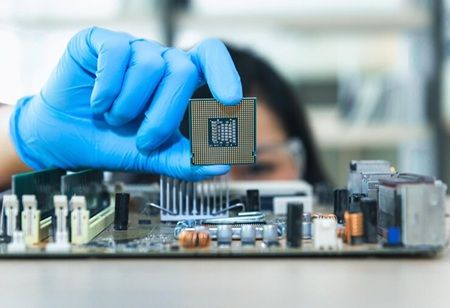
- India targets 28nm–65nm chips for automotive, telecom, and industrial electronics demand.
- Global “China +1” strategy boosts India’s role in diversifying semiconductor supply chains.
- Semicon India Programme’s Rs 76,000 crore incentives drive fab and supply chain growth.
India is strategically advancing its semiconductor industry, focusing on mature-node chips (28nm–65nm) to address growing demand in automotive, telecommunications, and industrial electronics. According to a Bastion Research analysis, India is positioning itself to fill a “critical gap” in the global supply chain.
This approach mirrors Taiwan and South Korea’s semiconductor growth in the 1970s–1990s. India is making strides in system integration for automotive electronics, telecom, consumer devices, and medical technology, leveraging its globally competitive talent pool and rapidly scaling operations.
Increased supply chain resilience by companies to cut dependency on China is improving the prospects of India in its global so-called China +1 strategy. In response, the Semicon India Programme, first announced with Rs 76,000 crore worth of incentives in 2021, is meant to attract manufacturers, set up fabrication facilities and develop an indigenous supply chain. An investment of Rs 1.6 lakh crore has been sanctioned under India Semiconductor Mission (ISM) that involves 10 projects in six states.
Also Read: Trump to Hit Steel Chips with Tariffs Eyes Putin Trade Talks
Recent approvals include four projects worth Rs 4,600 crore in Odisha, Andhra Pradesh, and Punjab. In May, the Union cabinet greenlit a sixth semiconductor plant in Jewar, Uttar Pradesh, a joint venture between HCL Group and Foxconn, located near Jewar Airport. Of the other five plants, four are in Gujarat: Tata Electronics–PSMC’s fabrication unit, CG Power–Renesas–Stars Microelectronics ATMP, Micron Technology’s ATMP, and Kaynes Semicon’s ATMP.
The fifth, Tata Semiconductor Assembly and Test, is in Assam. Prime Minister Narendra Modi announced on Independence Day that India-made chips will enter the market by year-end, signalling rapid progress in establishing India as a key player in the global semiconductor landscape.

